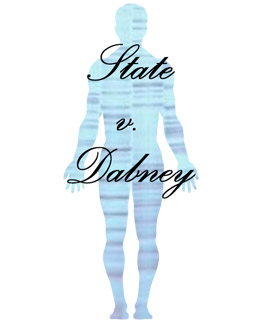Archival Notice
This is an archive page that is no longer being updated. It may contain outdated information and links may no longer function as originally intended.
Home | Glossary | Resources | Help | Contact Us | Course Map
The uniqueness of DNA profiles allows prosecutors to seek criminal complaints and arrest warrants based on an unnamed suspect’s DNA profile. In 2000 a Wisconsin prosecutor attempted to preserve jurisdiction in a sexual assault case by issuing a “John Doe” DNA arrest warrant. Wis. Stat. §968.04(3)(a)4. The Wisconsin prosecutor reasoned that the court would accept a DNA profile as identification of the person to be arrested.
Three days before the applicable statute of limitation was set to run in a 1994 sexual assault case, a Wisconsin prosecutor filed a “John Doe” warrant based on the perpetrator’s DNA profile. Approximately 3 months later, a cold hit identified “John Doe” as Bobby Dabney, a Wisconsin inmate. Dabney was subsequently convicted at trial. In 2003 the Wisconsin Appellate Court upheld the conviction holding that the DNA warrant and criminal complaint were sufficient to confer personal jurisdiction, and the case was commenced before the statute of limitations expired [State v. Dabney, 663 N.W.2d 366; 2003 WI App. 108; 264 Wis.2d 843 (Wis. Ct. App. 2003)].
Additional Online Courses
- What Every First Responding Officer Should Know About DNA Evidence
- Collecting DNA Evidence at Property Crime Scenes
- DNA – A Prosecutor’s Practice Notebook
- Crime Scene and DNA Basics
- Laboratory Safety Programs
- DNA Amplification
- Population Genetics and Statistics
- Non-STR DNA Markers: SNPs, Y-STRs, LCN and mtDNA
- Firearms Examiner Training
- Forensic DNA Education for Law Enforcement Decisionmakers
- What Every Investigator and Evidence Technician Should Know About DNA Evidence
- Principles of Forensic DNA for Officers of the Court
- Law 101: Legal Guide for the Forensic Expert
- Laboratory Orientation and Testing of Body Fluids and Tissues
- DNA Extraction and Quantitation
- STR Data Analysis and Interpretation
- Communication Skills, Report Writing, and Courtroom Testimony
- Español for Law Enforcement
- Amplified DNA Product Separation for Forensic Analysts


